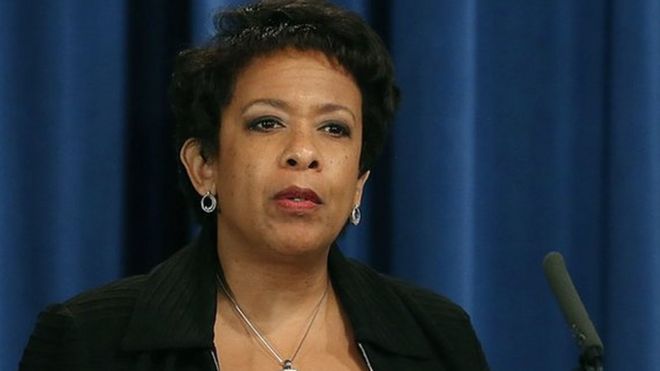Few of those escaping the cold and damp of a northern European winter appeared to be aware of President Yahya Jammeh’s surprise proclamation last month that the tiny African country he has ruled with an iron grip for more than 20 years would henceforth be known as the Islamic Republic of the Gambia.
“Really?” said Linda, 49, with a hoot of disbelieving laughter. Turning to her holiday companion outside Solomon’s beach cafe, she added: “It doesn’t seem at all Islamic, does it, Chrissie? Quick, we’d better get another beer in before they close all the bars.”
An order that all female government employees must cover their heads was rescinded 10 days later because it had made women “unhappy”, according to a government statement. Jammeh has assured the Gambia’s small Christian population, about 4% of the 1.8 million total, that there will be no restrictions on religions other than Islam. And although the president reportedly wanted to implement sharia law more than a decade ago, as yet there have been no concrete moves to do so.
But foreign diplomats have been instructed to refer to the Islamic Republic of the Gambia in all official communications, and the country’s only television channel – run by the state – routinely uses the new name in its broadcasts. The scholarly Supreme Islamic Council has been dispatched to tour the Gambia’s towns and villages to shore up support for the Islamic state.
Analysts, diplomats and exiled dissidents believe the name change signifies a realignment of the former British colony with the Arab world, in particular the wealthy Gulf states. Some say the move could jeopardise the resumption of European funding, halted in December 2014 amid criticism of human rights abuses. It could also damage the tourist industry and possibly encourage the radicalisation of youth in a country characterised by one observer as “soft Islam”.
Jammeh seized power in a 1994 coup, almost 30 years after the country secured independence from Britain. Since then, he has won five-yearly presidential elections with increasing majorities that have been matched by sliding credibility. Any serious opposition is quickly stamped on; diplomats speak of polling irregularities and bought votes. With no limit on the number of terms he may serve, he is expected to win another resounding victory in the election scheduled for December. Some say the 50-year-old intends to stay on as president for another two decades.
His regime is essentially a one-man operation. “The people around him are either scared or just yes men – and yes women, there are a lot of women. But no one is giving him frank advice,” said a diplomat based in the region. “He burns bridges faster than he builds them,” said another long-time observer.
Jammeh’s closest ally and role model was Muammar Gaddafi, the former despotic leader of Libya who was overthrown and died in 2011, and with whom – it is rumoured – he shared a taste for young women. Over the past two decades, Jammeh has tightened his hold on power with the help of the feared National Intelligence Agency and an unofficial paramilitary force, known as the Jungulers, which routinely detains, tortures and disappears those perceived as a threat to the regime.
A Human Rights Watch report, State of Fear, published in September, detailed “rampant human rights abuses” and a “pervasive climate of fear” in the Gambia. Jammeh, it said, had created “one of the most repressive and authoritarian administrations on the continent”. It said the Jungulers “typically wear all-black clothing, cover their faces and are armed with machetes and firearms, including Kalashnikov assault rifles. They have been implicated in numerous incidents of torture and extrajudicial executions.”
Alongside the weakening of opposition political parties, there is little freedom of expression. In a population with a high proportion of illiteracy, many depend for information on the state-run television channel. Independent journalists are regularly detained, disappeared or forced to flee, and no international media organisations are based in the country.

LGBT people have long been particular targets of Jammeh’s regime. Last May, the president said he would “slit the throats” of any gay men in the Gambia, adding: “No one will ever set eyes on you again, and no white person can do anything about it.” Previously he had described gays and lesbians as “vermin”, an “evil and strange social cancer”, and “anti-God, anti-human and anti-civilisation”. In October 2014, the government introduced a new crime of “aggravated homosexuality” with a penalty of life imprisonment.
Last May, Jammeh rejected a series of recommendations from the UN Human Rights Council, including decriminalising homosexuality, removing restrictions on freedom of expression and abolishing the death penalty.
Not surprisingly, many Gambians have fled the country. According to Eurostat, the number seeking asylum in EU member states tripled between 2013 and 2014, to 11,500. Others leave to improve their economic opportunities and send money home to impoverished families.
Thirteen months ago, Jammeh cut ties with the EU after it had raised concerns over human rights abuses. In turn, the EU blocked $16m of development funding – a critical sum for the impoverished country, whose fragile economy relies on tourism, remittances and peanut exports. Income from tourism, which accounts for at least 20% of GDP, plummeted as a result of the recent Ebola crisis in west Africa, even though there was not a single case in the Gambia, and it has yet to recover.
The row with the EU, along with an earlier sudden decision to pull out of the Commonwealth on the grounds it was a “neocolonial institution”, is seen as a significant factor in the president’s declaration of an Islamic state.
“He’s done this now because he’s starved of funds,” said Sidi Sanneh, a former Gambian diplomat now living in exile in the US. As well as EU grants, generous funding from Libya has dried up since the revolution and Jammeh also cut ties with Taiwan in 2013 after it refused to provide additional cash bailouts. “Jammeh is looking to the Gulf states – Qatar, Bahrain, Kuwait – for the funds he’s being denied by traditional donors, especially the EU,” said Sanneh.
According to Marloes Janson, of the School of Oriental and African Studies in London, “Jammeh has lost western support, so he’s now turning to the Muslim world”.
But, she adds, the prevalence of sex tourism in the Gambia may also have fuelled the president’s Islamism. In a bid to counter “national decay”, government clean-up campaigns have targeted “bumsters” – the young men who sell sexual services to female tourists – rounding them up, shaving their heads and sending them for periods of forced labour. “[Jammeh] has not only used religion to shore up his legitimacy as a Muslim leader, but also to redefine the Gambian nation through his policing of morality,” said Janson.
But grinding poverty and lack of opportunity could combine with increasing repression and religiosity into a potent cocktail. “Jammeh is making a mistake. He’s making things worse by stirring up religious sentiment,” said Sanneh. “It’s an inopportune moment to insert the word ‘Islamic’ into the name of the country when you have Isis [Islamic State] running all over the region.”
Another Gambian dissident, Imam Baba Leigh, who fled to the US in 2013 after being imprisoned for five months, warned of radicalisation. “Isis, al-Qaida, Boko Haram – they are like wildfire. If they can penetrate the UK, the US, Nigeria, Libya, I see no reason why they can’t penetrate the Gambia too, especially when its leader calls a secular country an Islamic state.”
Jammeh, who has survived four coup attempts – the last a little more than a year ago – appears determined to entrench his power. “He’s very unpopular, but he rules by fear,” said Sanneh. A diplomat in the region said Jammeh “has his jackboot at the public’s throat”. Another observer described him as a “beast”, adding: “He wants to be king of Africa, but he’s just a normal dictator.”
On the beach, those working the sands were focused on scraping a meagre income from selling fruit juice, horse rides, hair braiding and themselves. “Hey nice lady, what’s your name, where are you from, you like to go dancing?” is the endless soundtrack to a stroll along the Atlantic shore. The tourist season, diminished though it is, has a few more months to run before the rains come and what are known as the “hungry months” begin. It doesn’t seem likely that Jammeh’s declaration of an Islamic state is going to solve many of the Gambia’s problems.
CLICK





